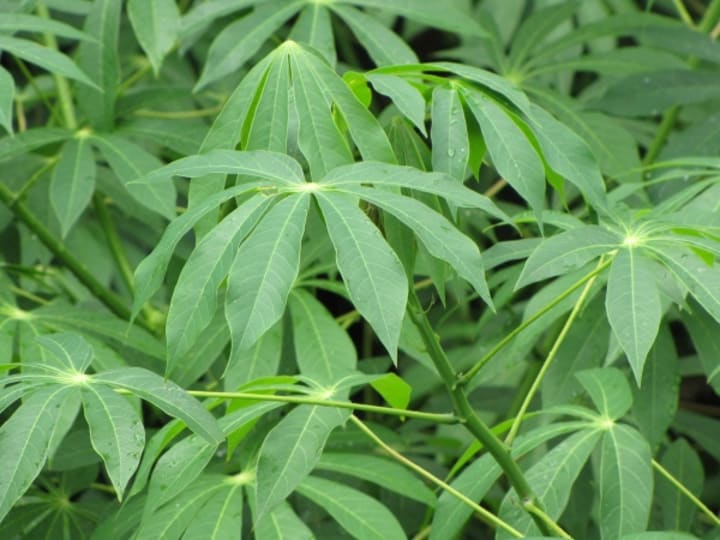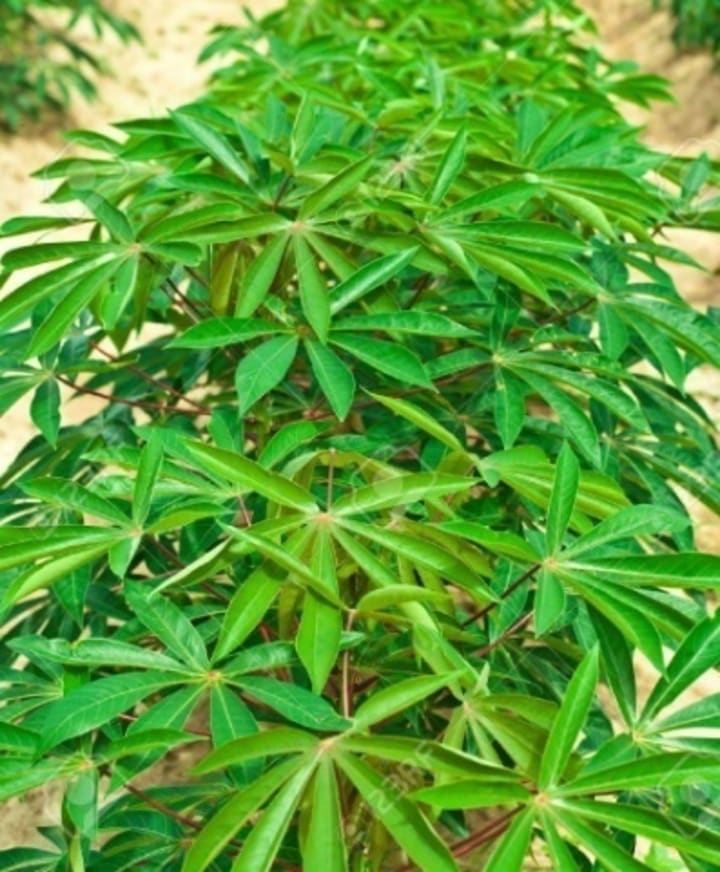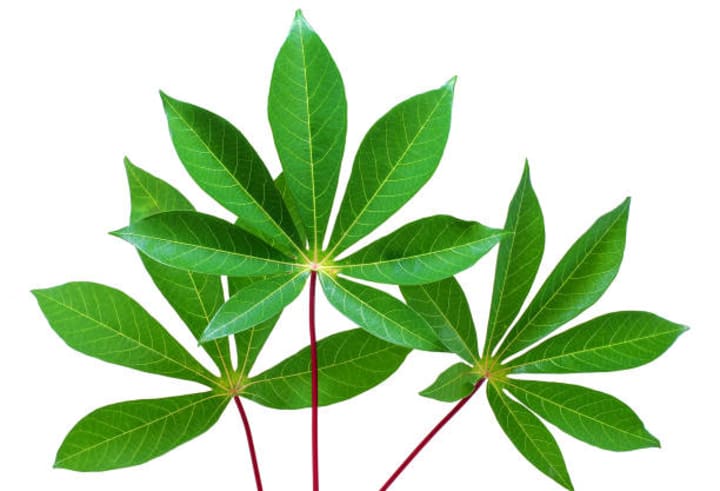Cassava Leaf: Its Health Benefits
Its Health Benefits

cassava, also known as yuca or manioc, is a starchy root vegetable widely consumed in many parts of the world. While the roots of cassava are commonly used in cooking, the leaves of this plant are often overlooked. However, cassava leaves offer a range of health benefits that make them a valuable addition to your diet. In this article, we will explore the various health benefits of cassava leaves and why you should consider incorporating them into your meals.
Table of Contents
Introduction
Nutritional Profile of Cassava Leaves
Antioxidant Properties
Boosts Immunity
Supports Digestive Health
Aids in Weight Management
Promotes Heart Health
Anti-inflammatory Effects
Bone Health
Enhances Skin and Hair Health
Improves Eye Health
Potential Anti-Cancer Properties
Side Effects and Precautions
How to Prepare Cassava Leaves
Conclusion
FAQs
1. Introduction
Cassava leaves, the foliage of the cassava plant, are rich in various nutrients, including vitamins, minerals, and antioxidants. They are a staple food in several African and Asian countries, where they are prepared in a variety of dishes. These leaves are highly versatile and can be cooked and consumed in numerous ways.
2. Nutritional Profile of Cassava Leaves
Cassava leaves are packed with essential nutrients that contribute to their health benefits. They contain significant amounts of vitamins A, C, and E, which act as antioxidants and help protect the body against free radicals. Additionally, they are a good source of dietary fibre, folate, calcium, and iron.
3. Antioxidant Properties
The high antioxidant content in cassava leaves helps combat oxidative stress in the body. Antioxidants protect cells from damage caused by free radicals, reducing the risk of chronic diseases such as heart disease, cancer, and age-related macular degeneration.
4. Boosts Immunity
Cassava leaves contain compounds that support the immune system, including vitamin C and antioxidants. Regular consumption of cassava leaves may help strengthen your immune response, making you less susceptible to infections and diseases.
5. Supports Digestive Health
The fibre content in cassava leaves promotes healthy digestion. It aids in maintaining regular bowel movements, preventing constipation, and supporting a healthy gut microbiome. Additionally, the leaves contain compounds that may help alleviate digestive disorders such as diarrhoea.
6. Aids in Weight Management
If you are looking to manage your weight, cassava leaves can be a beneficial addition to your diet. They are low in calories and high in fibre, which can help you feel full and satisfied while consuming fewer calories. This can assist in weight loss or maintenance efforts.
7. Promotes Heart Health
Cassava leaves contribute to heart health due to their potassium content. Potassium is essential for maintaining healthy blood pressure levels, reducing the risk of cardiovascular diseases such as hypertension and stroke. The leaves also contain heart-healthy antioxidants that protect against oxidative damage to the heart.
8. Anti-inflammatory Effects
Inflammation is a natural response by the body to injury or infection. However, chronic inflammation can contribute to various diseases. Cassava leaves possess anti-inflammatory properties that can help reduce inflammation and lower the risk of chronic conditions like arthritis and inflammatory bowel disease.
9. Bone Health
Cassava leaves are a good source of calcium, which plays a crucial role in maintaining strong and healthy bones. Adequate calcium intake, along with other bone-supporting nutrients present in cassava leaves, can help prevent osteoporosis and improve overall bone health.
10. Enhances Skin and Hair Health
The vitamins and antioxidants in cassava leaves contribute to healthy skin and hair. Vitamin C aids in collagen synthesis, promoting skin elasticity and reducing the signs of ageing. The antioxidants protect the skin and hair cells from damage caused by free radicals, helping maintain a youthful appearance.
11. Improves Eye Health
Cassava leaves contain beta-carotene, a precursor to vitamin A, which is essential for good vision. Regular consumption of cassava leaves may contribute to better eye health and reduce the risk of age-related macular degeneration and cataracts.
12. Potential Anti-Cancer Properties
Some studies suggest that cassava leaves may possess anti-cancer properties. They contain compounds such as flavonoids and phenolic acids, which have shown potential in inhibiting the growth of cancer cells. However, further research is needed to fully understand the extent of their anti-cancer effects.
13. Side Effects and Precautions
While cassava leaves offer numerous health benefits, they should be consumed in moderation. Raw or improperly cooked cassava leaves contain small amounts of cyanide, which can be toxic. However, thorough cooking significantly reduces cyanide levels, making them safe for consumption. Pregnant or breastfeeding women should consult their healthcare provider before including cassava leaves in their diet.
14. How to Prepare Cassava Leaves
Cassava leaves can be prepared in various ways, depending on cultural preferences and regional cuisines. They are often used in soups, stews, and stir-fries. To prepare cassava leaves, first, wash them thoroughly to remove any dirt or debris. Then, blanch the leaves in boiling water for a few minutes to remove any bitterness. Chop the leaves and cook them with other ingredients according to your preferred recipe.
some images of cassava leaves



15. Conclusion
Incorporating cassava leaves into your diet can provide numerous health benefits. From boosting your immune system to supporting digestion and heart health, these leaves offer a range of nutrients and antioxidants that contribute to overall well-being. However, remember to cook them properly to eliminate any potential toxicity. Enjoy the versatility of cassava leaves and explore different culinary possibilities with this nutritious ingredient.
16. FAQs
Q1: Can cassava leaves be eaten raw?
No, raw cassava leaves contain small amounts of cyanide and should not be consumed. It is important to cook cassava leaves thoroughly to remove any potential toxicity.
Q2: Are cassava leaves high in calories?
No, cassava leaves are low in calories and can be a valuable addition to a balanced diet, especially for those looking to manage their weight.
Q3: Can cassava leaves help with hair growth?
Cassava leaves contain nutrients and antioxidants that promote healthy hair. Regular consumption may contribute to improved hair health and growth.
Q4: Are cassava leaves safe during pregnancy?
Pregnant women should consult their healthcare provider before consuming cassava leaves, as excessive consumption may not be suitable during pregnancy.
Q5: Where can I buy cassava leaves?
Cassava leaves can often be found in speciality grocery stores, international markets, or online food retailers. Check your local options or search for online suppliers to find cassava leaves for purchase.
In conclusion, cassava leaves offer a wealth of health benefits, ranging from their antioxidant properties to supporting digestion, heart health, and even potential anti
About the Creator
VitalityVibe
Welcome to VitalityVibe, your ultimate resource for unlocking your health potential and embracing a vibrant life. Our platform is designed to inspire and guide you on your journey to holistic well-being.






Comments
There are no comments for this story
Be the first to respond and start the conversation.